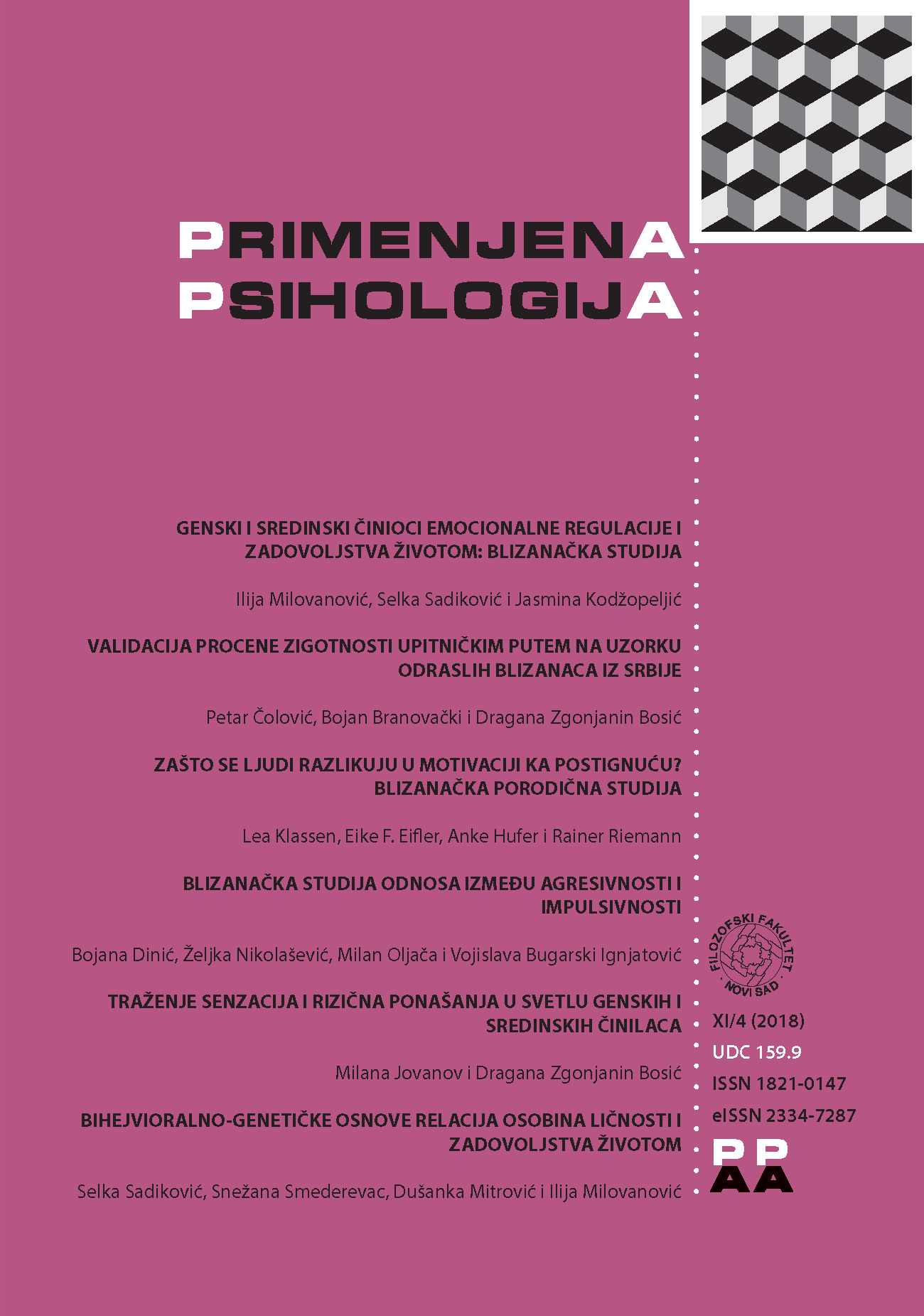GENETIC AND ENVIRONMENTAL FACTORS IN EMOTION REGULATION AND LIFE SATISFACTION: A TWIN STUDY
DOI:
https://doi.org/10.19090/pp.2018.4.399-417Keywords:
cognitive reappraisal, emotion regulation, emotional suppression, satisfaction with life, twin studyAbstract
An expansion of the mental health research at the end of the 20th century largely places well-being in the focus of interest of contemporary psychological science. However, the state of the art results of behavioral-genetic studies provide a complete framework of the factors that influence the indicators of subjective well-being through the specification of etiology of their relationship. The main aim of this study is to evaluate genetic and environmental factors that contribute to connections among life satisfaction measures and emotional regulation. The study included 182 pairs of twins of both sexes (121 monozygotic and 61 dizygotic twin pairs), aged 18-48. The proportion of individual sources of covariance between the examined phenotypes was tested with a multivariate biometric method. Genetic factors explained a slightly higher variance of life satisfaction (53%), while the environmental factors had a significant role in explaining different types of emotional regulation. General genetic factors were potentially important only in the explanation of the cognitive reappraisal of negative emotions. In other cases, the environmental factors were of the greater importance. An insight into the phenotypic correlations suggests these constructs have low to moderate intercorrelations; likewise genetic factors have a potential significance (45%) merely in the case of two types of cognitive reappraisal of emotions.







